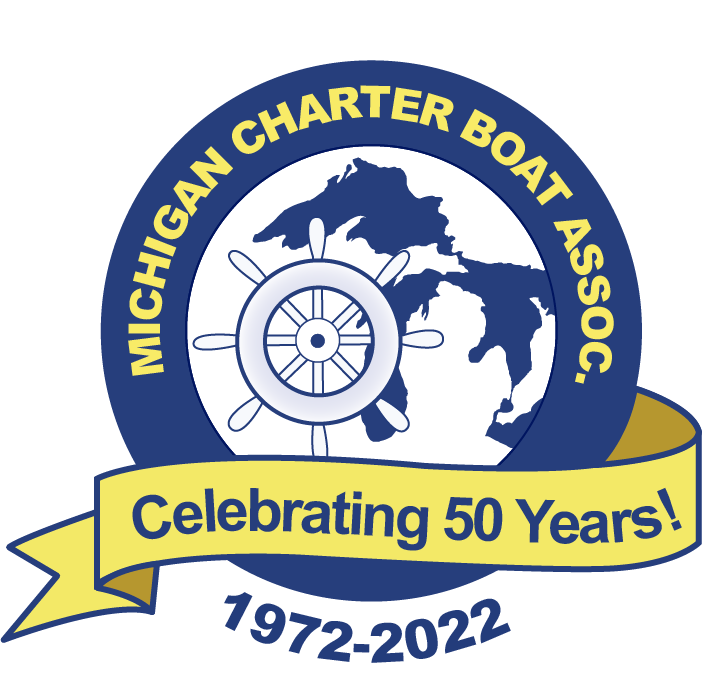LATEST NEWS POSTS
The Coalition to Protect Michigan’s Resources (CPMR) filed its principal appellate brief in the United States Court of Appeals for the Sixth Circuit yesterday arguing against entry of the 2023 Great Lakes Consent Decree (2023 Decree). The 2023 Decree was a negotiated settlement of four sovereign Michigan Tribes, the United States of America, and the State of Michigan. Judge Paul Maloney approved the 2023 Decree in August after considering CPMR’s objections to the agreed-upon management framework. In handing down his order, Judge Maloney rejected CPMR’s claim that biological harm is likely to happen to the Great Lakes fisheries due to the drastic increase in gillnet fishing in lakes Michigan, Huron, and Superior accompanied by significantly too high of target annual mortality rates for Lake Trout and Whitefish. Even more problematic, Judge Maloney failed to recognize the 2023 Decree does not contain proper measures to mitigate harm to the resource because of overfishing. This is especially concerning with the undisputed declining Whitefish stocks. CPMR’s appeal is available to the public and can be found in its entirety here. The appeal focused on the District Court’s disregarding of biological evidence that the 2023 Decree could irreparably harm the resource. CPMR presented expert witnesses and biological data showing that the massive expansion of gillnets into new areas of the Great Lakes is unsustainable and will decimate local fisheries in Michigan. The appeal raises several legal and fact-based questions about the District Court’s decision. Chief among them, did the District Court abuse its discretion
This November , 1,800 Arctic grayling were released into three northern Michigan lakes, marking a significant milestone in the state’s effort to re-establish this species, absent from Michigan waters for nearly a century. These fish, originally hatched from eggs transported from Alaska, were raised at the Marquette State Fish Hatchery before being stocked in Alger, Houghton, and Manistee counties. This release is part of the Michigan Arctic Grayling Initiative, launched in 2016 by the Department of Natural Resources (DNR) and the Little River Band of Ottawa Indians, aimed at restoring self-sustaining grayling populations. Although the current generation of grayling is unlikely to reproduce due to lack of imprinting on the local waters, future generations are expected to be raised in Michigan streams, with the first eggs potentially being stocked as early as spring 2025. Grayling were once a prominent species in Michigan, especially vital to the Anishinabek people and a favorite among anglers. However, overfishing, habitat degradation, and the introduction of non-native species led to their extinction in the state by 1936. The ongoing efforts to reintroduce them are part of a broader goal to restore Michigan’s ecological heritage. For more information on the Arctic grayling restoration efforts, visit the Michigan DNR Fish Stocking Database.
D & A ProgramIt is critical that boat operators pay close attention to the time frames outlined in the MCBA Drug and Alcohol Program. We can all agree that the Great Lakes are one of our precious resources. The MCBA is committed to assuring that its membership is engaged in complying with the USCG regulations that govern our operation on the waterways. In practice the Legislature relies upon the USCG to regulate maritime professionals and the administration of existing regulations to assure the safe operation of vessels on the Great Lakes. BackgroundIn 1988 the United States Coast Guard (USCG) promulgated regulations that require professional mariners to participate in a federally mandated Drug and Alcohol Program. The scope of the regulation includes charter boat operators. Since 1992, MCBA has provided a low cost random drug testing program for its membership. Over the years there have been many changes to the mandated program including recent alcohol testing requirements. To date, MCBA has been able to successfully comply with these mandated program changes. In the last few years the U.S.C.G has placed a new on ”immediate”- the time requirement from random notification to collection. Members RoleMembers role in this process is one of education and compliance to assure that the imposed time frames are met. There will be significant consequences to the membership if compliance with the regulation is not administered according to the plan. It is the Board’s intent to make the process as user friendly as possible and still maintain compliance
- ← Previous
- 1
- …
- 4
- 5



